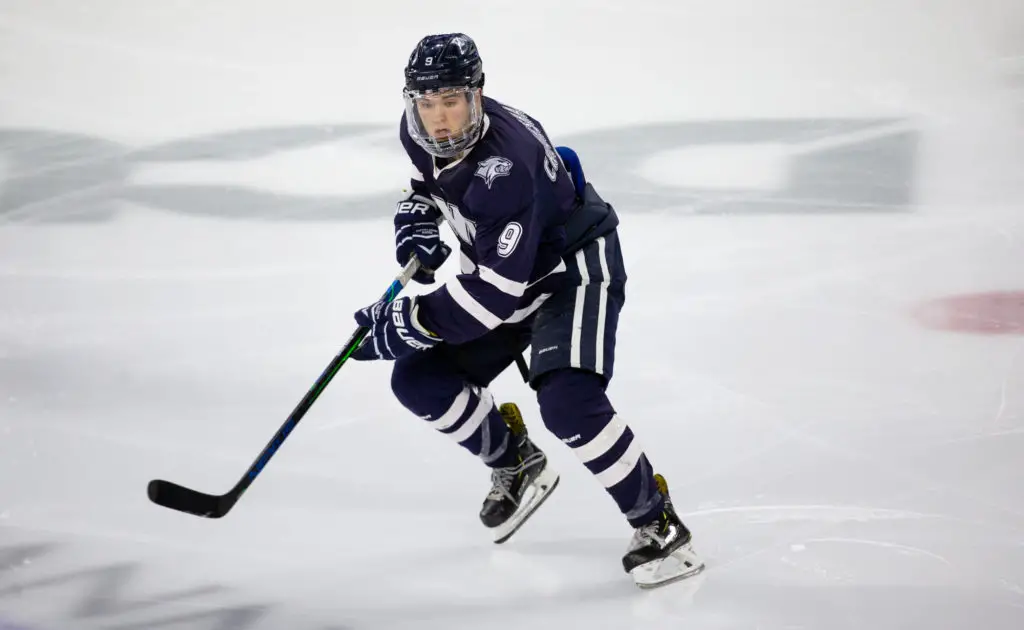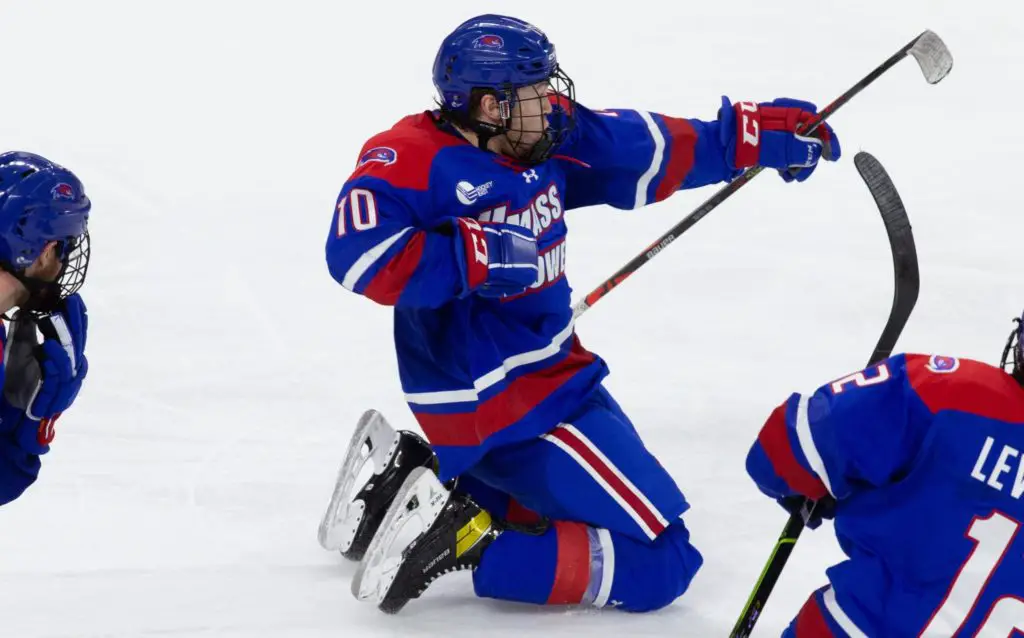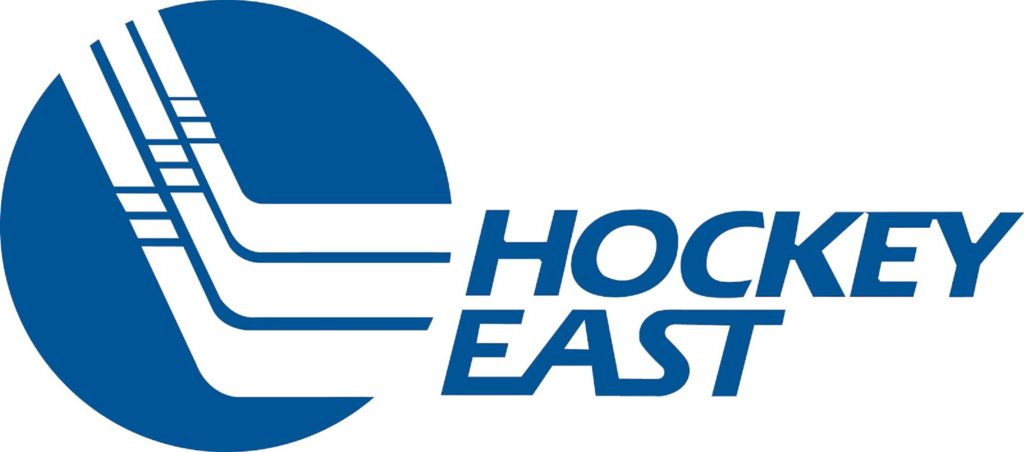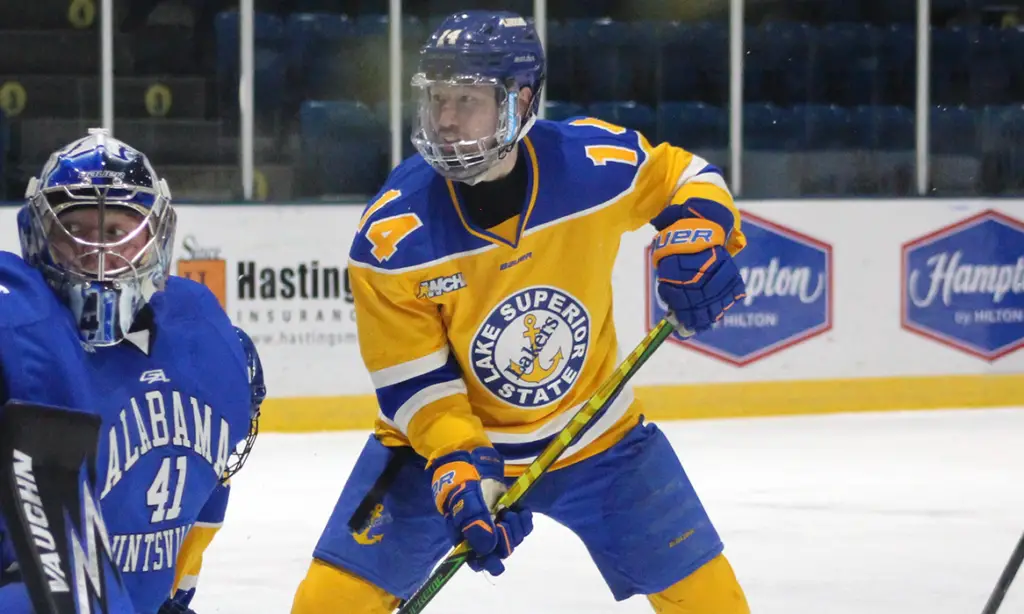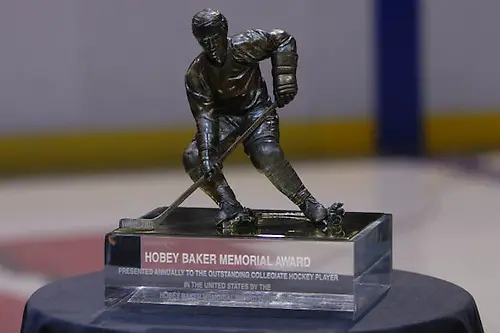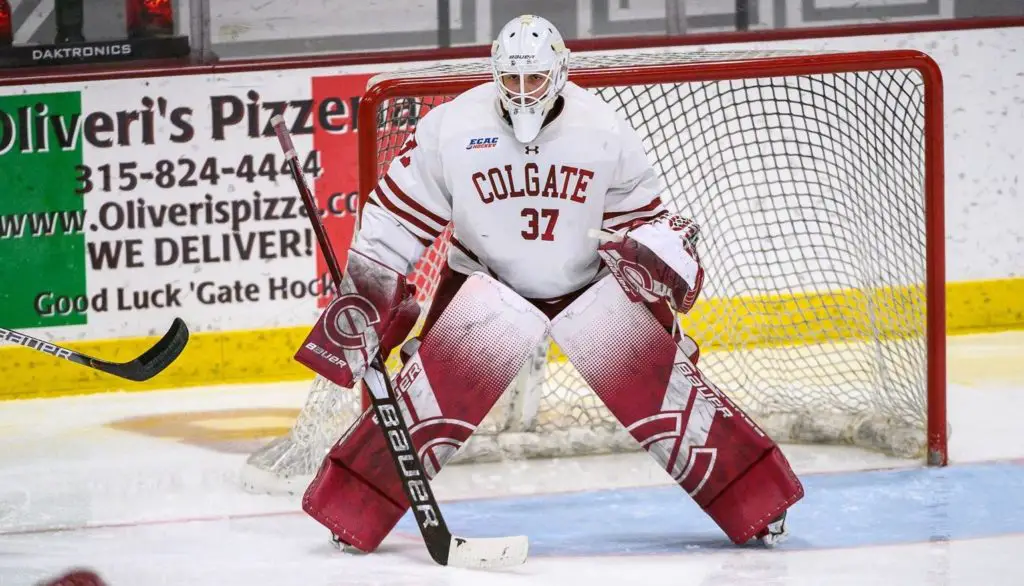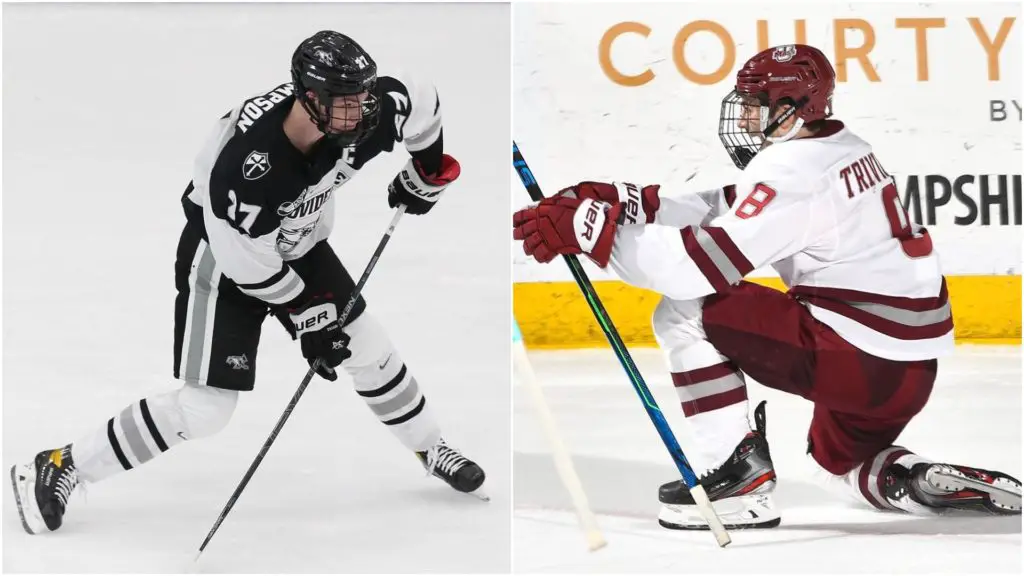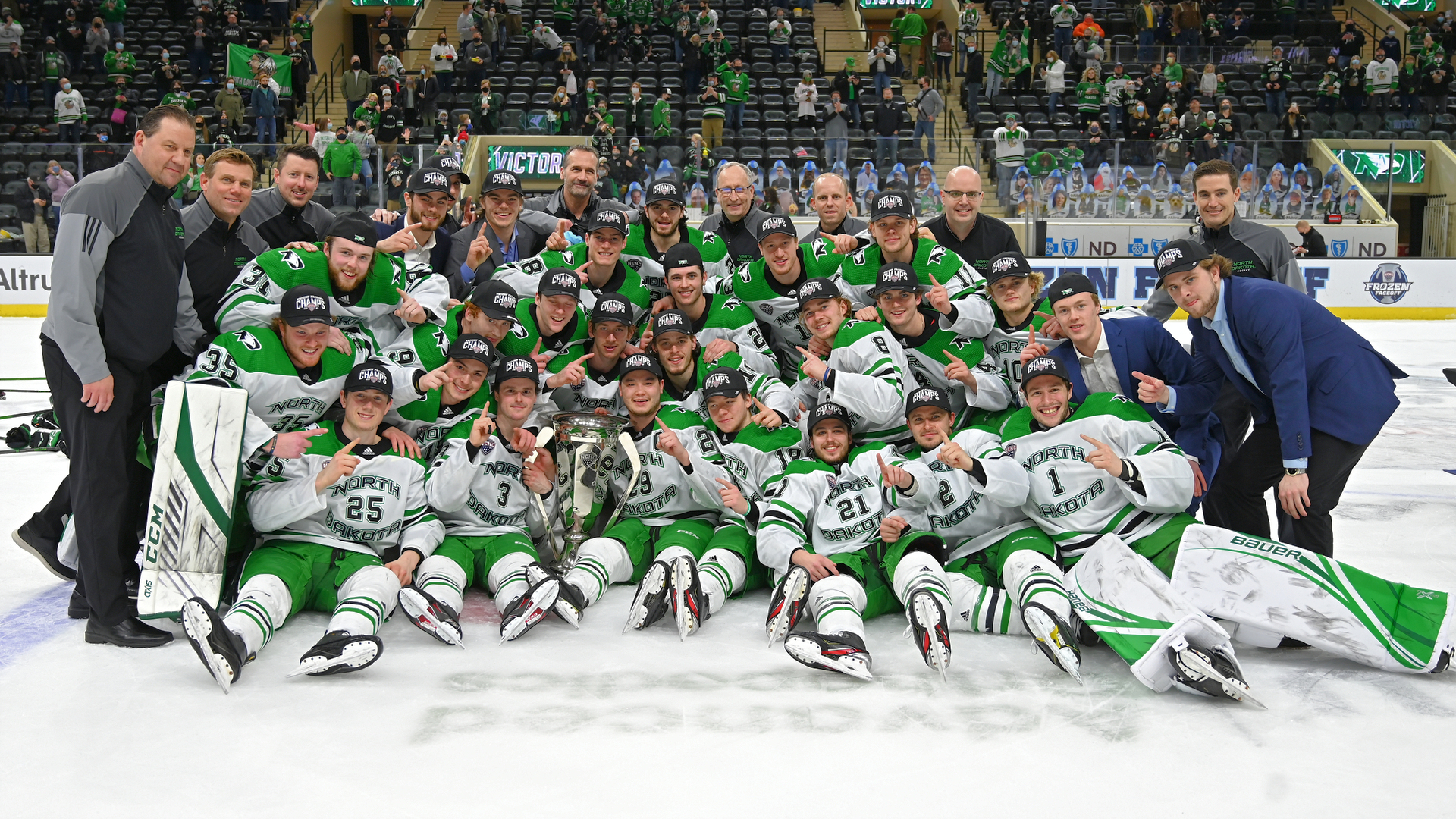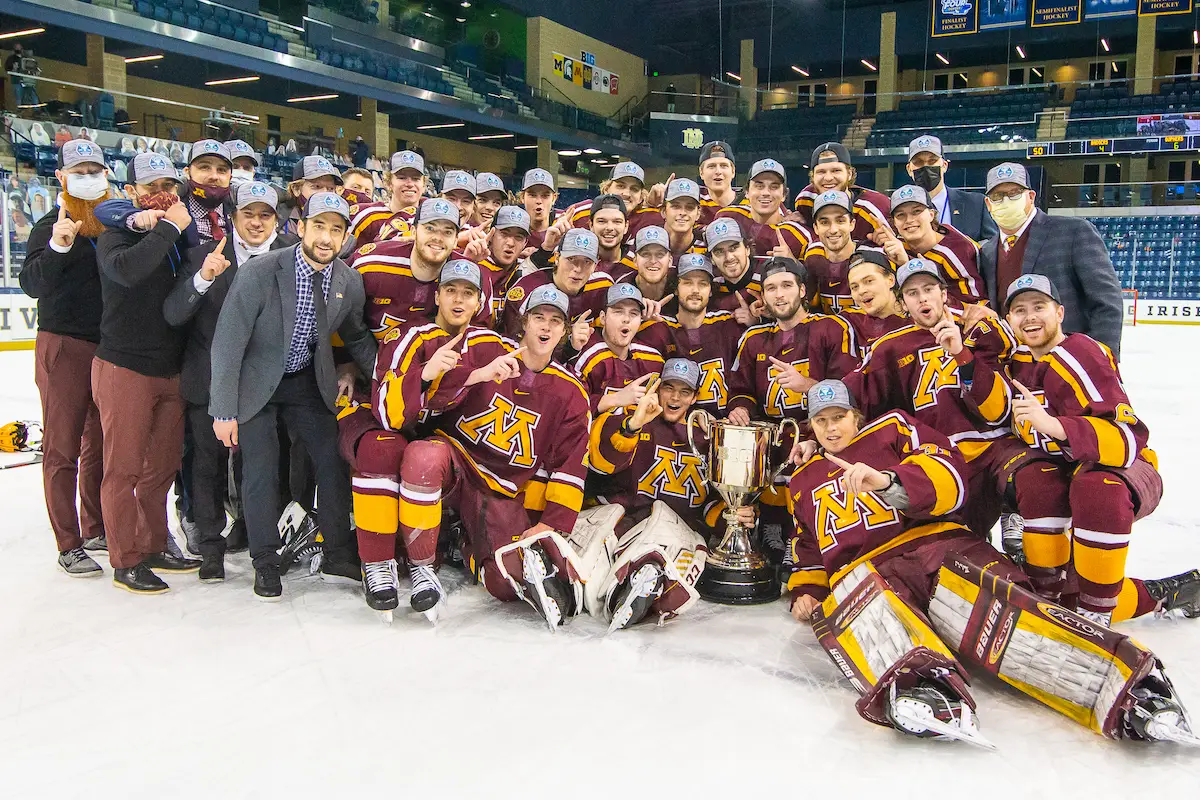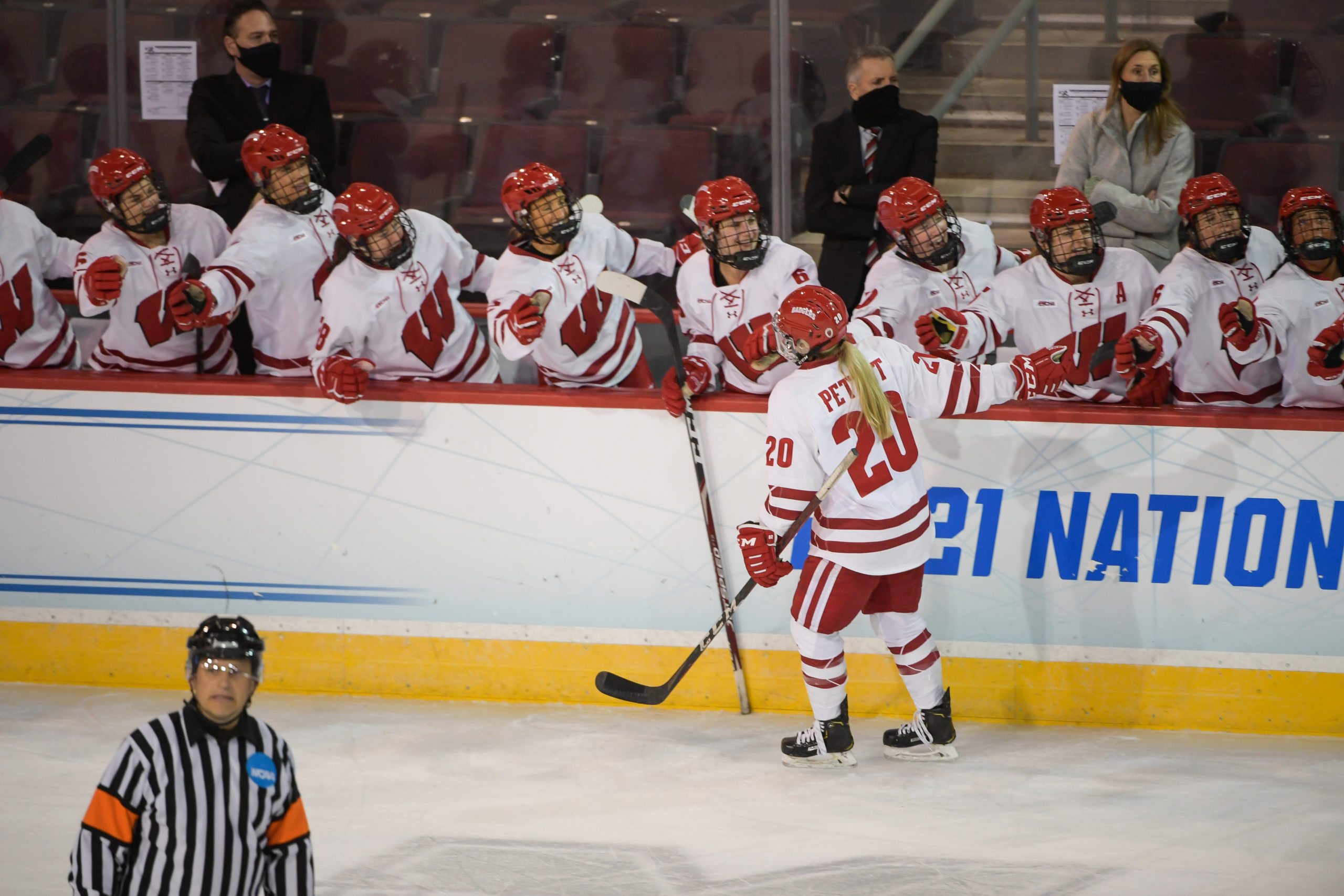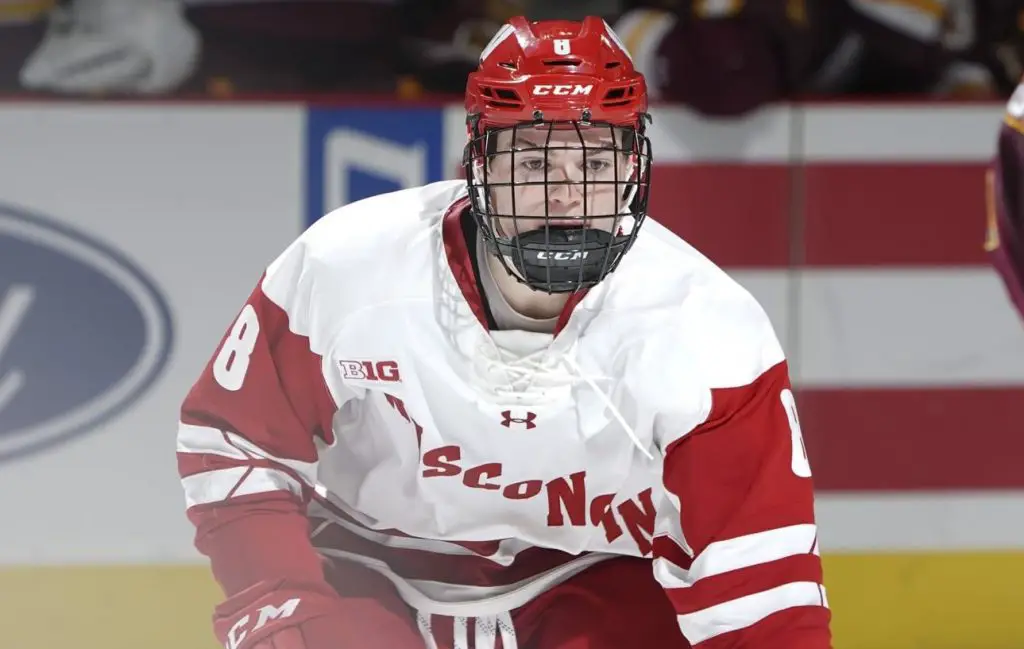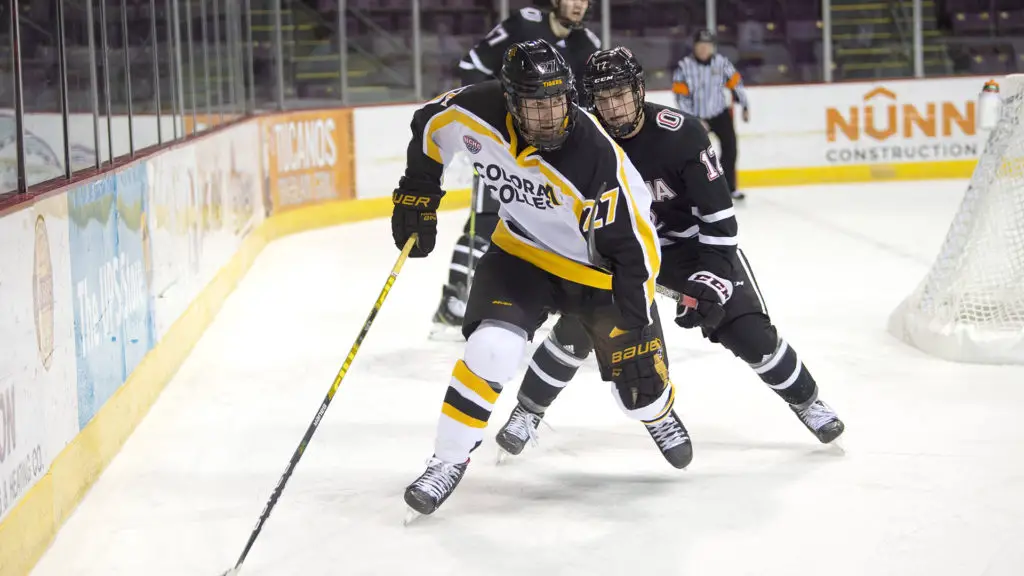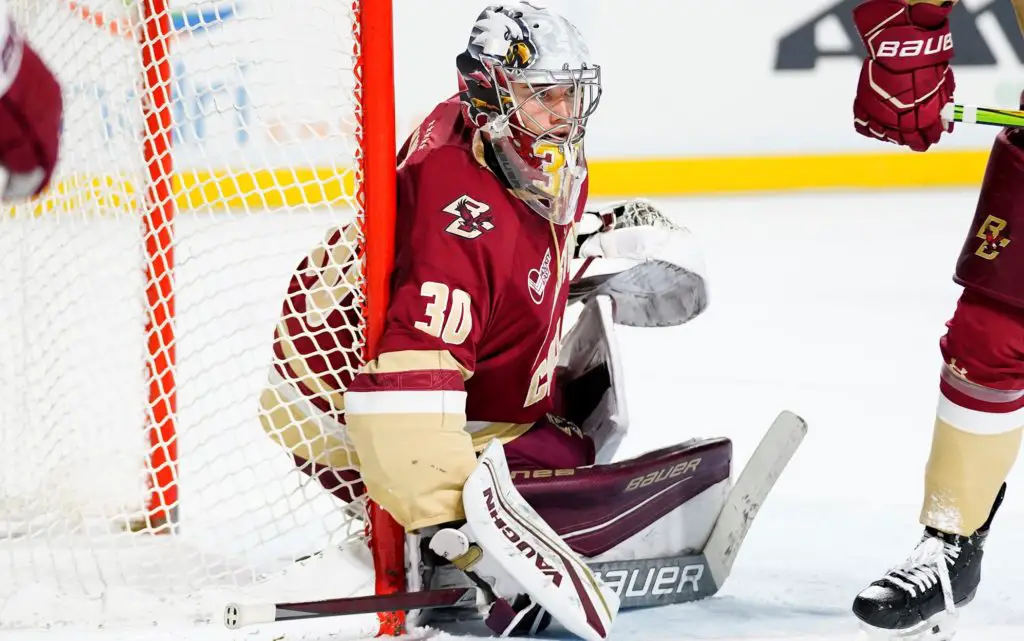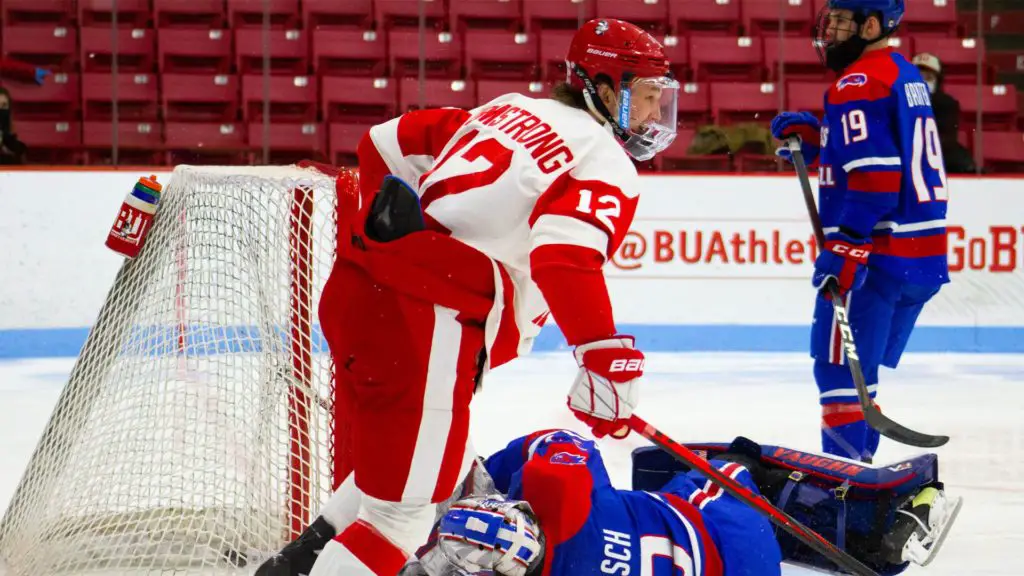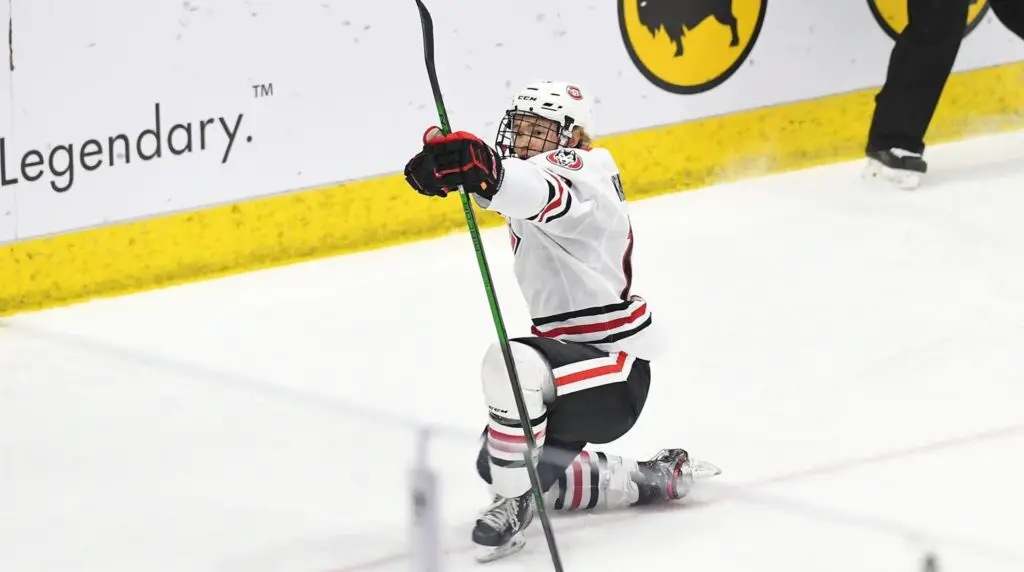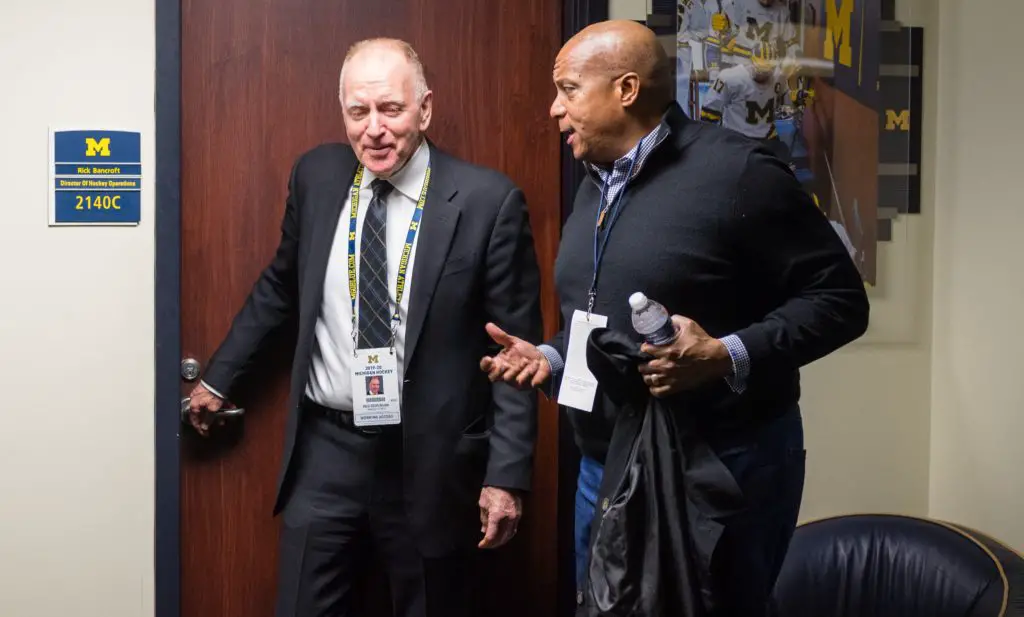
Another sign of how much things have changed, as if one was needed, was evident in Sunday’s conversation with Big Ten commissioner Kevin Warren.
When Warren took over at the helm of the conference in January 2020, a college hockey reporter opening an interview with a line of questions about an infectious disease wouldn’t have been normal.
Such is life for the Big Ten, and sports in general, these days.
Warren’s job as boss of the conference quickly delved into unchartered territory, where simply playing games as scheduled became a tall task.
As the hockey season wraps up, how’d he do?
“It’s always easier to turn around and look back and evaluate decisions,” Warren said on Sunday, about one hour before the puck dropped on the Big Ten’s hockey tournament. “We were doing everything we possibly could to create an environment to play sports in a safe manner during a global pandemic. I feel collectively that we made prudent decisions, we based our decisions on the health and safety of our student athletes and did all that we could for our conference.”
Now, with vaccines being distributed and the worst, hopefully, being in the rearview mirror, the commissioner reflected on some things that the conference can take away from the past 12 months.
“I think what it’s done, one, is reminded people to live in the moment,” he said. “Some of the things that we’ve done this year to make this season happen have really made us better, just from an operational standpoint. It just shows that it’s not one of these things where we do it this because we’ve done it that way. What’s the best way to do it? I know it’s really challenged people from a creativity standpoint to think outside of the ordinary proverbial box, so we asked ourselves, are there better ways that we can serve our student-athletes? That’s why I think this year’s so important also.
“It’s been a great, fair, non-offensive way to be able to ask ‘why?’ This also allowed us an opportunity to keep all the great things we’ve done in place and just improve upon certain areas.”
After a summer of uncertainty, a hockey season eventually came to be. So too, the interview eventually shifted from testing and temperature checks to the actual hockey that was played this season.
Put simply, Warren was impressed with what he saw and added that he was excited to travel to Notre Dame on Monday to watch the conclusion of the tournament.
“I watched a lot of games,” Warren said. “They’re talented, they play fast and physical. I was pleased with the way our Big Ten teams played this year, the way the coaches coached and the way the officials officiated. It was a really great season.”
As commissioner, Warren oversees the 14 Big Ten schools and two affiliate members. The conference sponsors 14 men’s and 14 women’s sports, so hockey is just a piece of the pie, but Warren said the sport holds a special place in his heart. His son, Powers, played youth hockey growing up in Minnesota before choosing to focus on football.
“My wife and my daughter and my son, we have some really fond memories of a lot of days and nights and a lot of early mornings in hockey rinks,” he said. “Driving around Minnesota, North Dakota and Wisconsin for my son to play in hockey tournaments, it was really special. The hockey community is really strong in our Big Ten footprint and I absolutely love the sport.”
Warren, who grew up in Tempe, Ariz., said that he has joked with Red Berenson that had hockey been more prevalent in the state at the time he probably would have played it. Berenson, the legendary former Michigan coach, was brought onboard as an advisor to the commissioner last May. Warren brought him up multiple times during the call and said that he leans in him heavily.
“Coach Berenson, there are many things that I deeply respect about him, but he never had a personal agenda,” Warren said. “We meet every Friday and we don’t have to fool around a lot. We get right to it. What he says, I listen to, because I know at the end of the day he has the best interests of our student-athletes, the coaches, hockey, and the Big Ten at the top of the list.”
In the college hockey landscape, the Big Ten stands out at the only non-hockey-specific conference. Even in its eighth season, it still manages to draw the ire of some fans who yearn for the way things used to be. With one year under his belt, what’s the new commissioner’s sales pitch to those people?
“We have some iconic brands, not only great teams but the arenas across the Big Ten,” Warren said. “It’s all good, the talent of our play this year has been great. We have schools who are focused on playing good hockey and I think that’s the biggest thing. It’s just so easy to be critical, but this is a focus in the Big Ten, hockey is a focus. We’re trying to build great brands that play good, hard, fast and clean hockey. I think it’s good for everyone involved with it.”
Before the pandemic, lagging attendance at some schools was a talking point around the conference. Limited attendance put that on the back burner for the short term, but with larger crowds hopefully being allowed in the future, Warren was asked about how important it was to capture an audience that should be starved for live sports and turn them into returning fans.
“I’m looking forward to the day, whenever that happens,” he said. “We have very passionate hockey fans, as you know, that respect the game. I’m looking forward to continually creating an environment where they get a chance to watch a lot of good Big Ten hockey.”
He then added that he was trying to not look too far into the future, something that was solidified as a fool’s errand last year.
“Our focus now is just finishing strong, finishing this season strong and finishing this academic semester strong from an athletic standpoint,” Warren said. “Then we’re going to take some serious time this summer to evaluate, not only hockey, but all our sports. What can we do better? What can we do to improve the games?
“I look forward to those discussions and being able to really evaluate what we can do better, but right now I’m happy for our student athletes and our coaches and our administrators and our entire Big Ten hockey community, because we’ve had a great season.”
